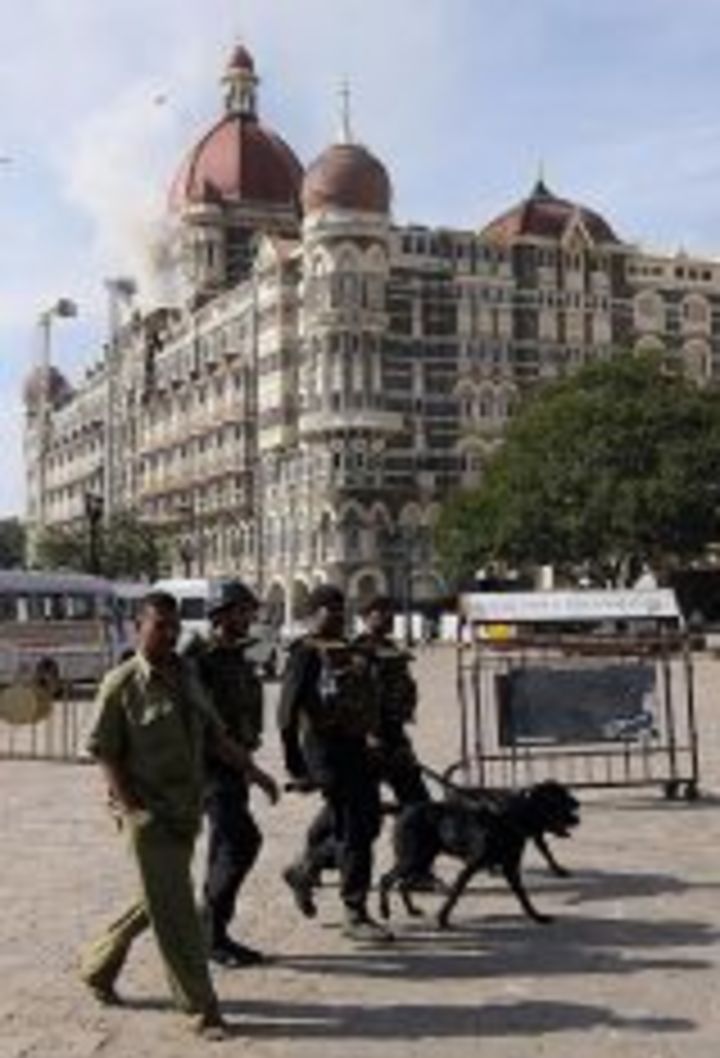The closeness of danger
Terrorism, which is ever-present, becomes something more tangible when cricketers are able to contextualise: hotels they have stayed in, cafés they have drunk in and bars in which they might have whiled away a few hours before a rare day off,

Terrorism, which is ever-present, becomes something more tangible when cricketers are able to contextualise: hotels they have stayed in, cafés they have drunk in and bars in which they might have whiled away a few hours before a rare day off, writes Mike Atherton in the Times.
In the same paper, Patrick Kidd writes that the tour must go on even if England take a break and return after Christmas.
England owe it to India and their fans to demonstrate that life must go on after such senseless carnage. The cliche about not letting the terrorists win can sound trite, but it is a valid one. England may seek sanctuary back in Europe, but others don't have that option. Even though reports suggested that the terrorists were seeking British and Americans, the bulk of those who died or were wounded were Indians. England should stay and compete as a mark of respect to them.
The Guardian's Mike Selvey feels the same way and calls the ECB's decision to have the players return home for a week a ludicrous extravagance and a carbon footprint exercise.
Five days in Colombo would surely have sufficed, or Dubai or Singapore. Once the players are home, it will take massive willpower to drag them on to a plane to India once more. The corporate feel, downtrodden as it may have been after the experiences on the field thus far, will have been lost. If the series does take place, the chances of Kevin Pietersen's team regaining any sort of intensity are not great.
Harsha Bhogle feels England have made the right choice of returning home and he advises India not to tour Pakistan as well. He writes in the Indian Express:
... even in our part of the world, Cricket must grow insignificant at times. It is a game that brings a lot of joy and cheer and optimism, but it is just a game. It cannot compete with war.
In the Daily Telegraph, former England captain Michael Vaughan, who was due to be in Mumbai this week before the High Performance camp was moved to Bangalore, speaks openly of his reaction to the terrorist attacks.
All our white Test kit is in one of the rooms at the Taj Mahal where one of the sieges has been going on: all our pads and clothes for the Test series, and our blazers and caps and ties. All the stuff was deposited there after England's two practice games in Mumbai at the start of this tour. That's how close the danger is.In the morning I woke up to a number of texts from people back home who thought I was in Mumbai, and I wanted to go home and get back to my two kids. I didn't think we were under threat in Bangalore, and history to date says cricketers are safe. But our security man said we couldn't go in our England kit to the hotel where we eat 60 yards across the road from the stadium, and we'd have to go in cars, we couldn't walk. We were told we couldn't go to any of the hotels in Bangalore that westerners use.
The future of a sporting venture is an irrelevance when weighed against the massive loss of life of the last 24 hours, but it is to be hoped that the brutality played out in the hotel lobbies does not stall cricket too long, writes Paul Kelso in the same paper.
To walk from the Taj to the Oberoi was to experience first hand the passion for cricket in India. First you cross the Oval Maidan, a mile-long strip of patchy grass in the heart of the city, on which scores of impromptu cricket matches take place apparently from dawn to dusk. Next you pass the Brabourne Stadium, historic home of the Cricket Club of India, a venue steeped in colonial ease that is due to host one of England's Test matches next month ... The Brabourne stages Tests rarely since the Board of Control for Cricket in India abandoned it in favour for the vast purpose-built bowl of the Wankahede Stadium, an 80,000-capacity arena whose floodlights are visible from the upper terrace of the pavilion. Now badly dilapidated and undergoing renovation, the Wankahede symbolised the first era of Indian cricket's expansion. A mile to the south on Marine Drive the Oberoi played host to the birth of the second when I visited.
Shane Warne in an article for Australia's Daily Telegraph recounts the luckiest night of his life, as he got off the Singapore Airlines with Darren "Chuck" Berry and Dimitri Mascarenhas.
I feel like it could have been like the movie Sliding Doors with Gwyneth Paltrow. I am glad I chose the right door. I feel extremely lucky.
Do cricketers require greater guarantees than the rest of the population? How much would their smart retreat embolden another cell of publicity-hungry terrorists, asks James Lawton in the Independent.
Nishi Narayanan is a staff writer at ESPNcricinfo
Read in App
Elevate your reading experience on ESPNcricinfo App.